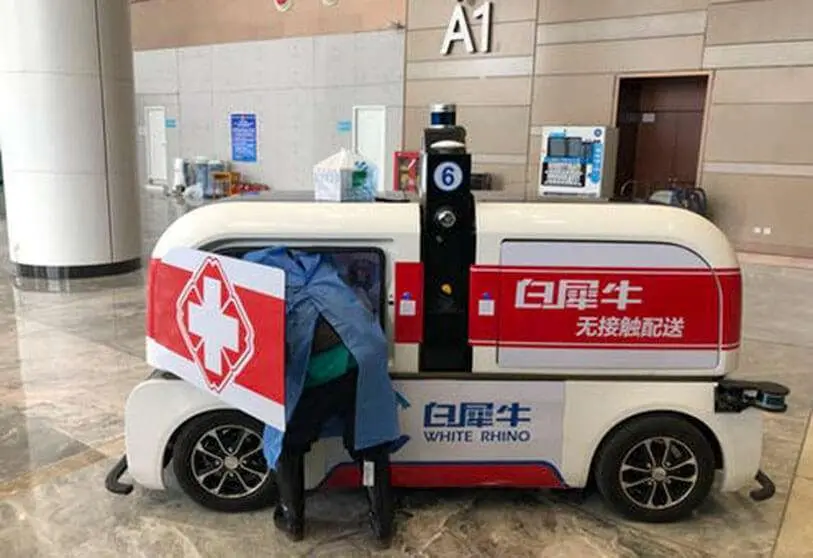Robots, allies in the fight against the coronavirus

With the boom in the robot industry, there is growing concern about the dangers associated with this trend. Currently, there is a debate about whether problems related to automation, facilitated by robots, can lead to an economic crisis due to job losses. However, robots can also improve our lives and even help us in times of need. The current coronavirus crisis exemplifies a practical application of how robots can become our allies.
In a recently published article I talk about how robots are already being used in various sectors, such as health, education and commerce. They are also used as support tools in crisis management. Robots are used to help in the search for people injured during earthquakes. Bomb squads also use them to deal with threats from explosives. These are just a few examples of how technology is helping us overcome challenges in times of severe need. Scientific literature has also provided evidence of robotic use during a crisis. As expected, a critical assessment of the issue leads researchers to mention the drawbacks and benefits of using robots in these contexts.
A recent study argues that several types of robots, such as air and ground robots and human-robot interfaces can be valuable during rescue tasks. Professionals often face difficult conditions and these technologies can enable them to increase their effectiveness while reducing the risk they face.
Similarly, other research suggests that swarms of autonomous flying robots can be extremely valuable in post-disaster search and assessment. These devices can use satellite images and actual locations of damaged and flooded buildings to quickly detect survivors. By doing so, they increase the chances of any rescue effort.
However, there are also possible drawbacks to the use of robots during crisis situations. For example, some researchers warn that it can have a negative effect on the well-being of victims. Disaster scenarios can create high levels of stress for those affected, particularly if they are lost, trapped or injured. A sudden confrontation with a robot, without human support, can be a surprise and further exacerbate their stress and anxiety.
In addition, human rescue teams may overestimate the robot's capabilities in particular rescue situations. Consequently, the appearance of these machines may create a false sense of hope for the victims. Worse still, technical mishaps in difficult terrain can lead to further injuries.
The uses of robots in Wuhan suggest that, if applied correctly, the benefits may outweigh the disadvantages. At least in the short term, a crucial time for reducing the number of infections and casualties. Robots are already being used to deliver food and medicine to coronavirus-infected patients. In the city where the outbreak occurred, they have even opened a hospital staffed mostly by robots. This measure reduces human-to-human contact, thus reducing the risk of increasing the number of people infected. But experts say the virus can be transmitted if an infected person touches a surface that will then be touched by another person. This means that these robots can also carry the virus on their surface.
Chinese hospitals have found a way to mitigate this potential risk of the saving robot becoming a possible carrier of the virus. Specifically, they use machines that are capable of disinfecting themselves before treating patients. But the technological solutions go beyond hospitals, as many civilians are quarantined in their homes. In response, the Chinese government has provided automated logistics robots to deliver medical supplies and food to homes in Wuhan.
The next time a news item highlights the negative aspects of the wave of automation provided by robots, remember that every coin has two sides. If used wisely, robots can be our allies.
Héctor González-Jiménez is Associate Professor in Marketing, ESCP Business School. He receives no salary, nor does he consult, nor does he own stock, nor does he receive funding from any company or organization that could benefit from this article, and he has stated that he has no relevant ties beyond the academic position cited










